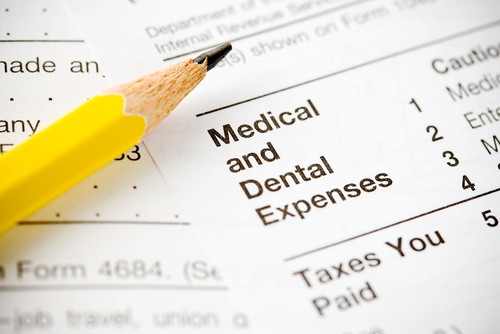
Dental Tax Structures – Can you TRUST them?
What is it?
The origins of trusts dates back to the 16th century in England and even back then they were used to hide the true ownership of property, protect the (family) assets and avoid taxes. The effect of creating a trust was that the rights to the property were divided between: the trustee (who holds the legal title to the property) and the beneficiary (who holds theequitable title to the property). The use of trusts has become more popular in Australia since the mid-1970s and there are now over 600,000 trusts operating in Australia.
A family (discretionary) trust is the usual type of trust that is used for operating a dental practice. Practice owners may also consider the use of a unit trust or a hybrid trust dependent upon their individual circumstances. The main benefit in using a family trust is the ability to have complete flexibility in the distribution of net income to family members on a lower tax rate than the principal dentist. Provided the distribution of net income meets the “personal services income rules” then it is possible to achieve an average tax rate well below the 30% corporate tax rate.
Why not use a company?
While a company offers the same legal protections as a trust (with corporate trustee) and has the advantage of a flat 30% tax rate, it does have the following disadvantages;
- Net profits of the company belong to the company and cannot be used by the practice owner for their personal benefit (e.g. repaying some of the family home loan). The only way to get access to the company’s money is for the company to pay a dividend to the shareholder who will then need to pay tax at their individual tax rate on the dividend received (less any franking credits).
- Dividends must be paid out to the person who owns the shares. This means there is very little flexibility in deciding who will get the dividends. Some flexibility can be added by having a trust own the shares.
- On the sale of a dental practice/goodwill, the company does not receive the general 50% capital gains tax exemption and therefore pays tax on any capital gain at the full 30% tax rate. Even if the company takes advantage of the small business CGT relief measures and pays no tax, it still has a problem in paying out the tax-free capital gain because it must be paid as a taxable dividend for which there are no franking/tax credits.
How do I use the trust?
If you are a small “sole trader” dental practitioner and you wish to use a trust, you would do so as a service trust. This means all of the dental income that is generated belongs to you and you are charged a service fee (approximately 60%) by your service trust to take care of all the administration relating to operating the practice including paying bills, employment matters, bookkeeping etc. This results in the dental practitioner earning approximately the same as if he were an employee and the profits generated within the service trust are available to be distributed to family members. It is important to use the trust structure correctly especially for small practices otherwise the profits are considered personal services income and are unable to be distributed to anyone other than the dental practitioner.
Where a dental practice is significantly larger than a sole trader with two or more full time equivalent dentists/hygienists then the practice can operate as a trading trust and not fall foul of the personal services income rules. This means all revenues belong to the trading trust and all expenses are paid from the trading trust resulting in a profit that can be distributed to family members with no requirement to pay a minimum 40% to the principal dentist.
The taxation rules surrounding personal services income and the manner in which trusts operate are extremely complex and the above information has been simplified to assist with understanding the basic issues surrounding trusts and companies. Associateships may involve two or more individuals operating under one “dental roof” but may also involve two or more family trusts linked by a unit or hybrid trust .The establishment and operation of these structures will require the involvement of both a specialist lawyer and accountant.
MW Partners deals with both simple and complex tax matters for dentists on a daily basis. We specialise in advising and explaining to dentists the risks and benefits associated with conducting their business under various different tax structures. If you have difficulty understanding the implications of the above structures for your business or would like a confidential discussion on any tax issues which are concerning you, please call Albert Gigl on (03) 8825 5400. As a member of the ADAVB, there is no charge for your first consultation. For your convenience, MW Partners is located on the same floor as the ADAVB at 10 Yarra Street, South Yarra.

